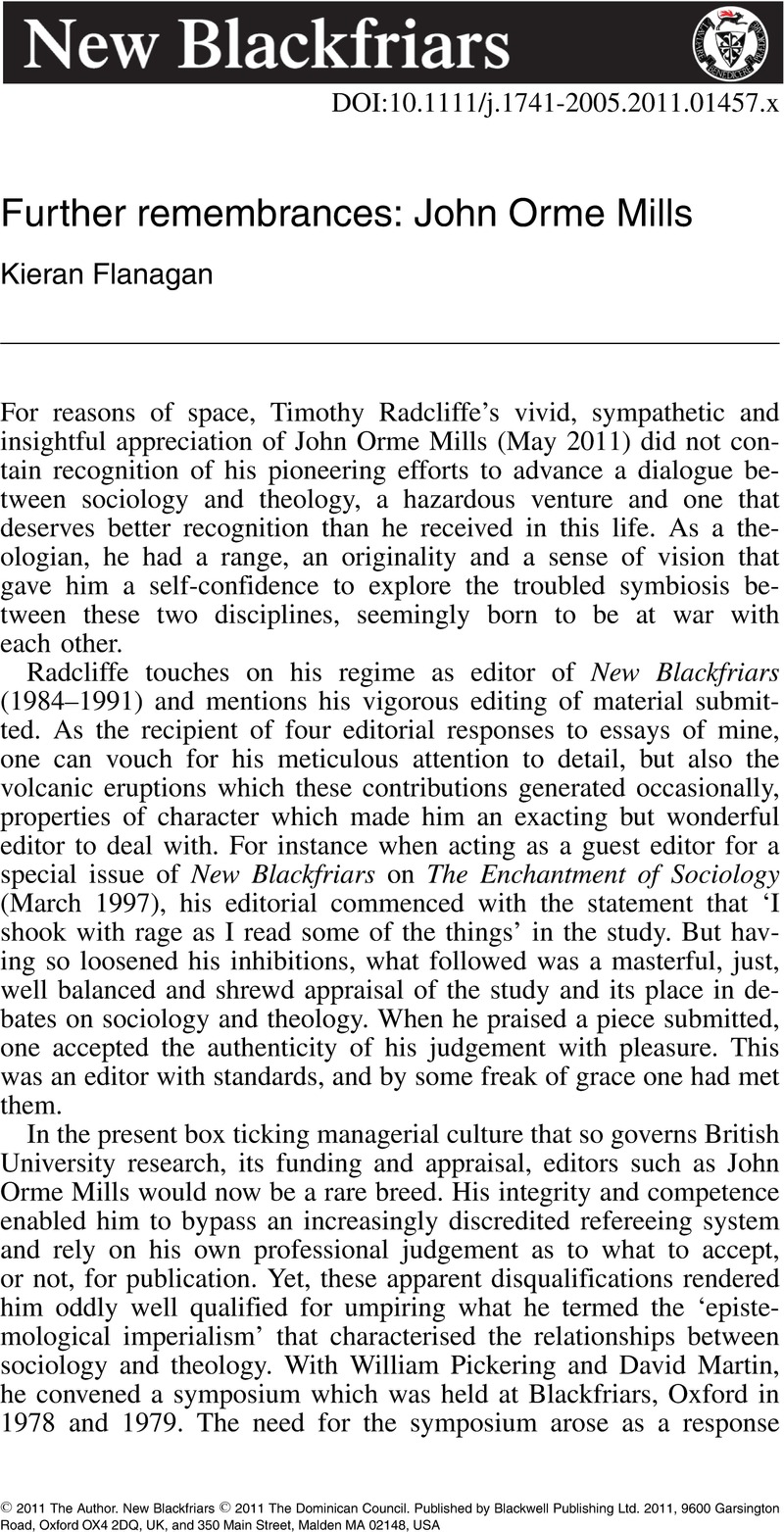No CrossRef data available.
Article contents
Further remembrances: John Orme Mills
Published online by Cambridge University Press: 01 January 2024
Abstract
An abstract is not available for this content so a preview has been provided. Please use the Get access link above for information on how to access this content.

Information
- Type
- Original Articles
- Information
- Copyright
- Copyright © 2011 The Author. New Blackfriars
References
1 Gill, Robin, The Social Context of Theology (Oxford: Mowbrays, 1975)Google Scholar.
2 Martin, David, Mills, John Orme & Pickering, W.S.F., eds., Sociology and Theology: Alliance and Conflict (Brighton: The Harvester Press, 1980)Google Scholar.
3 Martin, David, Mills, John Orme and Pickering, W.S.F., eds., Sociology and Theology: Alliance and Conflict (Leiden: Brill, 2004)CrossRefGoogle Scholar.
4 See for example Wilson, Bryan R., ed. Rationality (Oxford: Basil Blackwell, 1974)Google Scholar.
5 Martin, Mills & Pickering, Sociology and Theology, p. 1.
6 Ibid., p. 145.
7 Ibid., p. 13.

